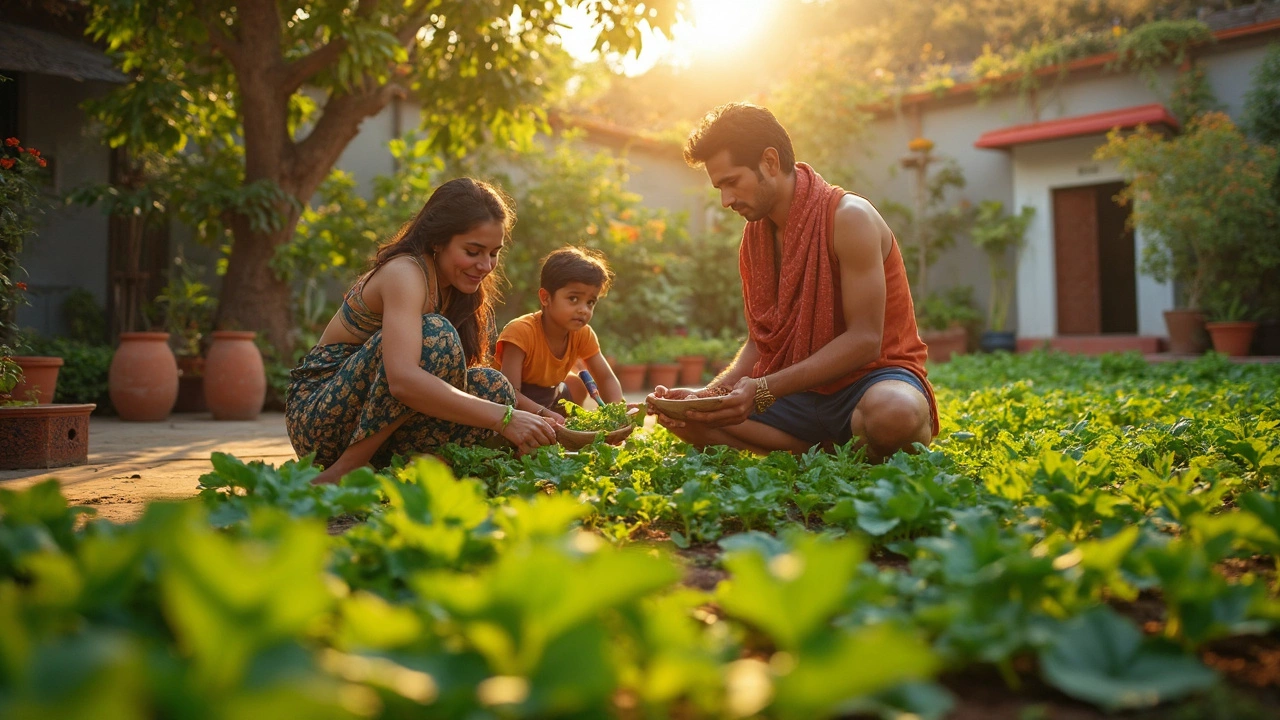Wondering which vegetable takes the crown for sustainability? This article cuts through the hype and shares which vegetable is the best choice for eco-friendly home gardens. You'll learn what makes a vegetable truly sustainable, practical tips for growing it, and clever ways to use every part. Find out how making a small switch in your garden can have a big impact on water use, soil health, and climate resilience. Even beginners will find it easy to start growing these environmental champions at home.
Eco-Friendly Vegetables: Grow Healthy, Sustainable Crops in India
When you grow eco-friendly vegetables, vegetables grown without synthetic pesticides, chemical fertilizers, or harmful plastics. Also known as chemical-free vegetables, they’re not just better for your plate—they help rebuild soil, save water, and protect bees and birds. In India, where farming has deep roots in tradition, going eco-friendly isn’t a trend—it’s a return to what worked for generations.
These vegetables don’t need fancy tech or imported seeds. They thrive with organic gardening, growing food using compost, crop rotation, and natural pest control, which you can start right on your balcony or backyard. Sustainable farming, farming that meets today’s needs without hurting tomorrow’s resources means using rainwater, recycling kitchen scraps into compost, and choosing seeds that naturally resist local pests. You’ll find this approach in many of the posts below—like how to loosen dense soil with compost, why drip irrigation fixes water waste, and which Indian native vegetables grow best without chemicals.
What makes these vegetables truly eco-friendly isn’t just what you avoid—it’s what you include. Healthy soil, pollinator-friendly plants, and smart spacing reduce the need for outside inputs. You don’t need to buy expensive organic labels. If you’re using homemade compost, growing seasonal crops like bitter gourd or amaranth, and avoiding plastic pots, you’re already doing it right. And yes, rabbits might nibble your zinnias, but they’ll leave your turmeric and spinach alone if you plant them with garlic or marigolds.
The posts here aren’t about perfect gardens. They’re about real ones—where people in Delhi, Bangalore, or Pune are growing food in small spaces, fixing broken drip lines, and learning from trial and error. You’ll find guides on what to add to clay soil, how to choose the right containers for balconies, and which plants bloom all year so you can keep harvesting without buying from stores. No fluff. No jargon. Just what works in Indian weather, with Indian soil, for Indian families.
Whether you’re new to gardening or have been growing veggies for years, the path to eco-friendly vegetables starts with one simple step: stop treating your garden like a factory. Start treating it like a living system. Below, you’ll find real stories, real fixes, and real results from people doing exactly that.
